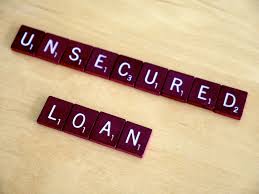There are many different types of unsecured personal loans that exist in the UK and since the Financial Conduct Authority (FCA) introduced increased regulations in 2014, lending is no also fairer. Although the best-known type of personal loan is payday loans, there are in fact various others, all of which can go a long way when used sensibly and correctly.
Unlike secured loans like mortgages and bridging loans, unsecured personal loans do not involve any high value asset to be used as security or ‘collateral’ on the loan in question. To negate this, lenders of these loans will generally lend significantly less than secured lenders. This is due to the increased degree of risk involved, with no assets to fall back on should the borrower default.
The industry has also developed over the last decade or so. There are now various different types of loans in this market, coming with different loan amounts, repayment terms and sometimes even interest rates. Common examples of unsecured personal finance include:
- Payday Loans
- Instalment Loans
- Guarantor Loans
- Credit Cards
It is important to note that before choosing a particular loan or financial product of this nature, you should always shop around and do your research. Failure to repay what you owe can seriously impact your credit rating for the future which may negatively impact your ability to acquire finance in the future.

Considering Payday Loans
In and out of the press and the media on a regular basis, payday loans are a well-known, tried and tested short term loan product that is utilised by hundreds of thousands of people across the UK each year. So popular are payday loans that there are more than 245,000 searches each month in the UK alone on Google for the term ‘payday loans.’ Google even has its own algorithm for ranking websites within the payday industry, emphasising the importance of keeping up with Google Algorithm updates in the payday sector alone, particularly since they rolled out their ‘mobile first’ algorithm update in 2018. In the payday loans space, These loans certainly serve a purpose and when used correctly can help you get out of a financial rut in the short term.
A payday loan works with the borrower applying for the loan amount they require; usually up to £1,500. They will need to provide a range of information about themselves, their state of employment, financial situation, dependents and various other details. This is all required to build as accurate a picture as possible of the prospective borrower.
Furthermore, this information is key to the lender’s lending decision and criteria. It may be the case that the borrower cannot afford the loan and based on their answers, the lender will not fund the loan as doing so could land the borrower in increased and unnecessary debt. Interest rates for these loans are capped at 0.8% per day, since the FCA’s payday regulations were introduced in 2014.
When it comes to repayments, a payday loan will typically need to be repaid in full. This means that when the pre-arranged repayment date comes around; usually at the end of the month, around the borrower’s ‘payday,’ the loan amount plus interest need to be repaid in full to avoid any additional charges or penalties.

Instalment Loans
Instalment loans are another popularly utilised short term unsecured personal loan product. These loans can usually provide similar loan amounts to payday loans and are very often seen as a viable and effective alternative to payday loans.
In the case of instalment loans however, the repayments that need to be covered are broken up into multiple repayments, often at a slightly lower interest rate than run-of-the-mill payday loan products.
For example, a borrower may require a loan of £500, but is not able to afford the loan repayment plus interest after a single payday alone due to finances being tight at the end of each month after expenses. In the case of this loan, the borrower may seek an instalment loan over 6 months. This could cost around £150 per month in repayments, clearing the debt after 6 months.
Guarantor Loans as an Alternative
Guarantor loans are a short term loan solution which falls in between the realms of secured and unsecured. In the case of guarantor loan, the borrower requires a third party who will then act as a guarantor on the loan. Should the borrower default at any point on their repayments, the guarantor may find themselves liable to cover the debts.
Although these loans require a further person in the process [the guarantor], they do often provide the opportunity to borrow more than other short term loans, with some guarantor lenders lending as much as £15,000, with a guarantor and their lending criteria in place.
It is important to remember though that the guarantor should be able to account to an extent for the borrower and that should the borrower default, the remaining loan amount plus charges and interest will need to be covered by the guarantor.

Credit Cards
This is arguably the most popular type of everyday unsecured credit facility. Most people in the UK who are eligible and old enough have at least one credit card. A well-established, tried and trusted line of credit, credit cards provide the holder [borrower] with the cash required up front. Then, at the end of each payment period [month], the borrower is required to pay off the balance of the card.
If the balance on the card i.e. the full amount spent on the credit card facility is cleared and paid off in full, the interest paid is 0%. However, credit cards allow borrowers to make ‘minimum repayments’ each month. Whilst this is useful, should the money to clear the debt not be available, not clearing a credit card’s balance means you will start to accrue interest on the debt.
Furthermore, not repaying the balance in full can be a negative factor for your credit rating as lenders may view this as not meeting your repayment obligations in full. Also useful to note is that although many credit cards allow the withdrawal of money from the credit facility via cash points, this should be avoided unless absolutely necessary as there are often additional charges associated with this.



